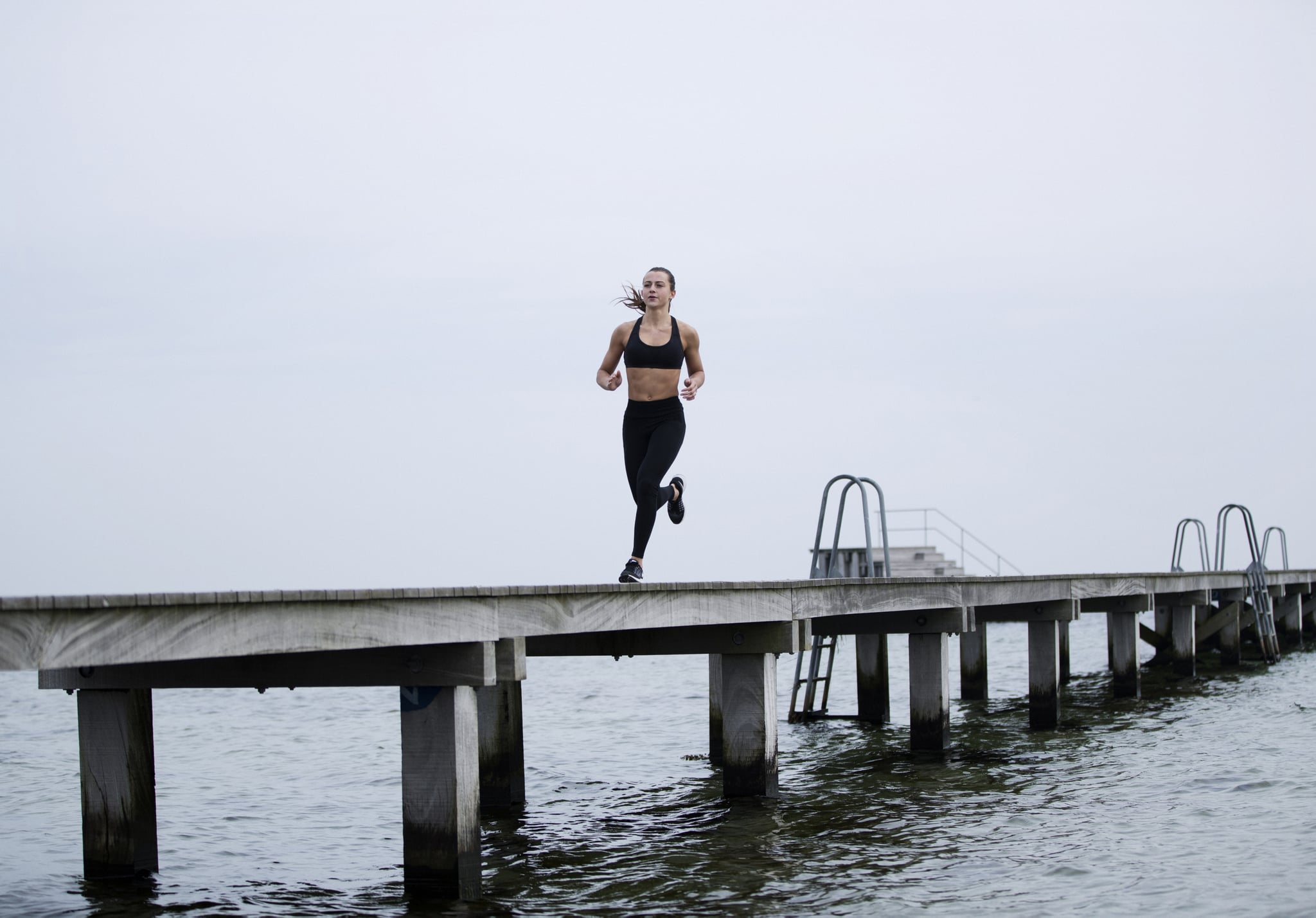
You've heard that running burns fat [1], and it's true: "Running is one of the best cardiovascular fat-burners for one simple reason: it burns a significant amount of calories," said exercise physiologist Tom Holland [2], MS, CSCS, author of The Marathon Method and fitness adviser for Bowflex. But when it comes to fat loss, not all runs are created equal. It's worth taking a look at the science to make sure you're maximising fat burn each and every time you hit the pavement.
How Do I Burn Fat by Running?
To burn fat on your runs, you have two options: a long, slow, steady-state run or a faster, shorter run, which is often done in intervals of high speed and recovery. Good news: both burn calories, coming from your body's fat and carbohydrate stores, but the amount and percentage of fat in particular that you're able to burn will vary based on the run. Let us explain.
"If you are on a lower-intensity run for a longer period of time, your body will more likely burn more fat than carbohydrates," said Jorianne Numbers, MS, an exercise physiologist at Northwestern Medicine in Chicago. The catch, though, is that longer and lower-intensity runs burn less calories overall. In other words, you'll burn through a higher percentage of fats than carbs, but the total amount of fat you use up might be less than in a high-intensity run, because the overall calorie burn is lower.
"While you do burn a greater percentage of calories from fat when exercising at lower intensities, you burn more fat calories and more total calories at moderate to higher intensities," Tom explained.
All of which means that higher-intensity interval runs are going to be your best bet for fat loss. They're a powerful way to not only burn significant amounts of calories and fat during your run, but also to keep up the fat burn after your workout, thanks to something called the EPOC (post-exercise oxygen consumption [3]) effect. "Even after running, your body will continue to burn calories," Jorianne confirmed. "The greater intensity of your workout, the more calories burned after exercise."
How Can I Tell If I'm Burning Fat Through Running?
When it comes to fat loss, the scale can only tell you so much. "Measuring your body composition and body fat percentage [5] is a better way to track your running-related fat loss," Tom said. There are a few ways to do that: using an at-home body fat scale (though they're not always accurate), having a fitness professional measure your body fat with calipers, or visiting a facility with a DEXA scanner [6] or hydrostatic underwater testing capabilities, which Tom said were the two "gold standards."
Jorianne also recommended measuring your waistline [7] before starting your running regimen, and checking it every so often to track your progress. "Losing inches across the waist, thighs, and arms all can be a benefit from exercising," she said. Progress pictures can come in handy as well.
You'll also need to eat a healthy, weight-loss-maximised diet to actually see the results of your hard work. With running, that means making sure to eat adequate amounts of whole grain carbohydrates [8] to replenish glycogen stores and protein to prevent muscle loss [9], as well as healthy fats [10] (avocados, nuts, and fish) to keep you full. Avoid processed foods, which have been shown to lead to weight gain [11]. Overeating after a hard, hunger-inducing run is common, so focus on healthy, whole foods that keep you satisfied.
How Often Should I Run Per Week to Burn Fat?
Fast interval runs help you torch the most fat, but the elevated intensity that makes them so effective also means you shouldn't do them every single day. Mix in a longer, steady-state run along with strength training and cross-training, Tom said, for a well-balanced week of exercise. Here's his recommended schedule, plus some workouts and runs you can try for each day:
- Monday: Interval run [13]
- Tuesday: Strength workout (try this 30-minute dumbbell session [14])
- Wednesday: Hill run [15]
- Thursday: Strength workout (try this full-body strengthening workout [16])
- Friday: Steady-state endurance run
- Saturday: Cross-training like a swim workout [17], cycling session [18], or yoga [19]
- Sunday: Rest day
A combination of faster interval runs, steady-state endurance runs, and strength training will not only maximise your fat burn but also help you avoid injury (another big concern around high-impact exercises like running). Bottom line: hit the pavement and you will burn fat. Combine your workouts with a healthy, whole-food diet, and you'll give yourself the best possible chance to see the results you crave.

